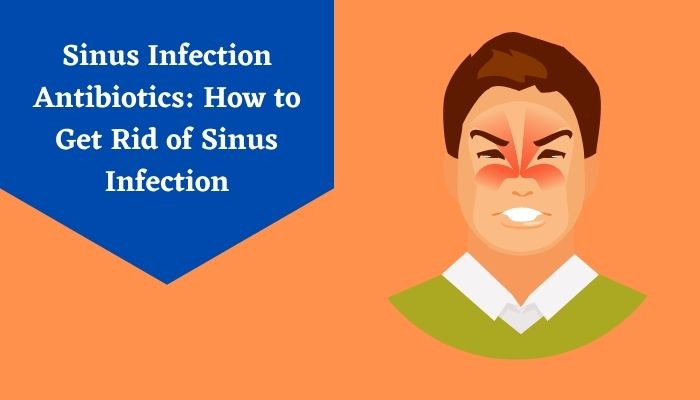Sanaya is a management student from Pune. Over the past few days, Sanaya has been suffering from a sinus infection. Sanaya took some over-the-counter medications and followed home remedies to overcome her infections. But her symptoms were not improved. One of her close friends then advised her to consult a doctor, as Sanaya may need some antibiotics for sinus infection to control her sinusitis/sinus infection. The doctor also prescribed sinusitis treatment antibiotics to cure the infection. After taking the course of sinusitis antibiotics, Sanaya’s condition improved drastically.
In this article, we are going to discuss how antibiotics will help in controlling sinus infections.
Sinus infections occur when fluid gets accumulated in the air-filled pockets in the face (sinuses). This fluid encourages germs to grow. Viruses are responsible for sinus infections but sometimes this infection may happen due to bacteria.
Also Read: Allergic Rhinitis: Understanding The Causes And Symptoms
Risk Factors
Some risk factors for sinus infection are:
- A previous cold and flu
- Seasonal allergies
- Excessive exposure to secondhand smoke
- Nasal polyps (a small growth on the lining of the nose or sinuses)
- Structural problems like deviated spectrum
- A weaker immune system or prolonged use of medications that make your immune system weak
Also Read: Sinus Headache Problem: Meaning, Causes, Symptoms & Treatment
Symptoms of a Sinus Infection
Some common symptoms of a sinus infection are:
- Runny nose
- Stuffy nose
- Facial pain or pressure
- Headache
- Post-nasal discharge
- Sore throat
- Cough
- Bad breath
- Fever
Sinusitis Treatment Antibiotics
Many patients who are suffering from painful sinus are recommended for antibiotics by doctors. Several studies have claimed that more than 90% of patients with acute sinusitis usually get antibiotics from GPs in the USA. Acute sinusitis may last up to 4 weeks. On the other hand, chronic sinusitis may last longer than 12 weeks.
Also Read: Top 9 Sinus Signs & Symptoms You Should Know
But antibiotics are not always recommended for sinusitis, according to recent research and physician experts. For mild or moderate sinusitis, your body can cure it within a few days. You should avoid using antibiotics that may cause antibiotic resistance. A joint guideline is given by the American Academy of Allergy, Asthma and Immunology, the American College of Allergy, Asthma and Immunology and the Joint Council of Allergy, Asthma and Immunology and according to the guideline, antibiotics should be used prudently. Some studies have also claimed that antibiotics may not make a huge difference. Nearly 60%-70% of people with sinus infections recover without taking antibiotics, according to the American Academy of Allergy, Asthma & Immunology.
Another study was performed on over 240 patients who were suffering from sinusitis and the result was published in the journal of the American Medical Association. The patients were given one of four treatments: antibiotics alone, nasal steroid spray to minimize tissue swelling, antibiotics along with the spray, or no treatment.
Also Read: 5 Common Causes of Sinusitis Disease
Patients who received no treatment performed better than those who received the best antibiotic for sinus infection. The nasal spray was also beneficial for people who have severe sinus symptoms. The nasal spray minimized the tissue swelling and helped patients to recover from their infections.
Sinus problems may also be caused by viruses and for viral sinusitis, even the most widely used sinusitis antibiotics won’t work. Your doctor can’t recognize whether you are suffering from viral sinusitis or bacterial sinusitis. They used to treat you depending on your symptoms. Sometimes other tests like computed tomography (CT) scans or cultures are recommended to diagnose sinusitis.
Antibiotics are generally given to those patients who can’t naturally fight off infection. Antibiotics are ideal for patients who are suffering from underlying conditions like diabetes, heart problems or kidney diseases. Antibiotics are also recommended to those whose symptoms have gotten worse or those who show no sign of improvement even after seven days.
Also Read: How To Treat Your Sinus Infection And Get A Healthy Life
According to the healthcare guidelines, if antibiotics are recommended, then a 10 to 14-day course is mandatory. Amoxicillin (Amoxil) and amoxicillin-clavulanate (Augmentin) are the best antibiotics for sinus infections. Patients, who are allergic to penicillin-type drugs, may take doxycycline as an alternative. Some physicians prescribe antibiotics but ask patients to wait for 3-5 days so that symptoms may improve. If there is no improvement, then patients can take antibiotics for sinus infections.
What is Antibiotic Resistance?
Antibiotic resistance is a common problem that you may face while taking antibiotics. The common bacteria that are responsible for sinusitis may carry a gene for antibiotic resistance. This gene gets activated in the presence of antibiotics. After consuming antibiotics for a few days, the gene is used to travel between bacteria and create resistance. If your symptoms are not improving even after taking a course of antibiotics within 4-7 days, then you are carrying a resistant strain of bacteria. Consult your doctor for further examination and possible culture.
Also Read: Sinusitis Diet: Foods to Avoid During Sinusitis Problems
Some Other Treatments of Sinus Infection
Some other medications may also help you in controlling your sinus infection.
- Painkillers: Over-the-counter painkillers are responsible for controlling the symptoms (pain, fever, and headache) of sinus infection. Some popular OTC medicines are,
- Aspirin (only for above 18 +)
- Acetaminophen (Tylenol)
- Ibuprofen such as Advil or Motrin
- Nasal Spray: you can use decongestant nasal sprays (on a short-term basis) to overcome your sinus infection. Steroid nasal sprays and saline are also recommended for prolonged use. Nasal sprays reduce swelling in the nasal passages.
- Steam Inhalation: Many people prefer steam inhalation to treat their sinus infections. You can take a hot water bowl and place a towel over your head to inhale the steam. Follow this process 3-4 times per day to overcome your infection.
Also Read: Sinusitis Medicine
Conclusion
Sinus infection is a common problem that can resolve automatically without any medication. But if your symptoms are bothering or getting worse day by day, consult a doctor before taking sinusitis antibiotics.


